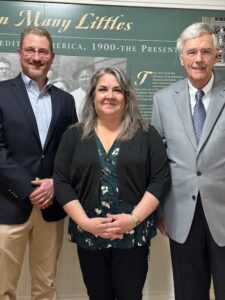One would think that financial education is a basic requirement for our citizens and military members. Think again. Families and schools actually have a responsibility to provide financial preparedness for their families and we cannot start at an early enough age.
Poor money management, little to no budgeting or self-control are important financial aspects that every person, young and old, needs to master as early in life as possible if they are to enjoy financial independence.
Most young people were never introduced to the value of money and basic budgeting concepts nor taught how to maintain and balance a checkbook. Others are able to manage their money to a degree, but are in need of financial advice on how to avoid compulsive spending and the wise use of credit.
Financial Education Tips From Gordon Simmons Former CEO Of Service Credit Union
Financial education for your daughters and sons – not to mention yourselves – instills confidence, generates peace of mind and, yes, even enhances your family’s readiness knowing that they are prepared to cope with the most basic of financial challenges. And your family member will also do their part in this training to keep pace with their counterparts’ knowledge.
Financial topics in which you discuss and train your family should at a minimum include budgeting, checkbook balancing, account reconciliation, benefits of savings, and prudent use of credit, how to start a savings program and shop and apply for credit. These training sessions can be provided by you one-on-one and/or via the Internet.
An alternative to these approaches was spear-headed years ago by the America’s Credit Union Museum, Manchester, NH, when the Museum launched their very first CU 4 Reality Fair, a financial literacy fair held for 200 middle school children.
The teens selected their profession or vocation and were assigned a monthly income at their school before arriving at the fair. Local vendors were on hand to offer “real world” purchase temptations such as a car, insurance, food, housing, vacations, utilities and much more, while the America’s Credit Union Museum, supported by credit union experts provided the youth with financial advice.
That advice dealt mainly with saving and spending money wisely.
The 200 teens in attendance at that first of many CU 4 Reality Fairs benefited greatly from the experience.
For military members, we all know that DoD 7000.14-R, Volume 5, Chapter 34, Sub Paragraph 340408 A and Sub Paragraph 340410 G, require that on-base financial institutions shall make basic financial education and counseling services available without charge to individuals seeking these services. If a military member is looking for a way to make financial sense out of financial education you should consider the aforementioned options.
Members of the civilian community need to rely on advice from their schools that, for the most part, already provide some basic form of financial education and their local credit union for appropriate financial education resources. In addition, the America’s Credit Union Museum, Manchester, NH, is also an excellent resource.
Help yourselves by helping your families through financial education and reap the benefits of an informed, prepared daughter, son and wife/husband in creating a brighter financial future for all.
Interesting Note About The First Credit Union
Note: The first credit union in the United states, St. Mary’s Cooperative Credit Association,” now “America’s Credit Union Museum,” was established in 1908 in Manchester, NH for the mill workers, including children, to promote thrift and the sensible use of credit.
The first credit union in America belongs to ALL credit unions from Hawaii & California to Pennsylvania; Detroit to Texas; Alaska & Washington State to Florida; Nevada to Maine and all the credit unions in states in between. It is a tribute to our heritage. The Museum serves as a validation to the fine beginning, past and future of the credit union movement across our great nation.
More information about Gordon Simmons Service Credit Union Leader From 1974-2015.
See an article Gordon wrote about doing business during economically-challenging time.


